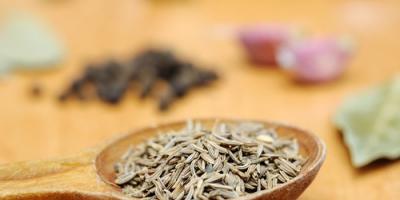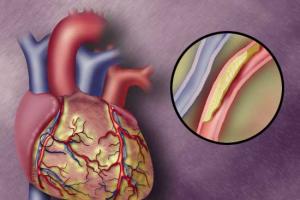The good health of the newborn is the primary task of all caring parents. However, there are situations when, with all their care and care, they are not able to prevent the natural processes associated with the formation of microflora and the normal functioning of the child's gastrointestinal tract.
Very often you have to deal with a situation where the tummy of a newborn hurts. All babies are different, for some it may manifest itself to a greater extent, for someone to a lesser extent, however, excessive gas formation in infants is considered practically the norm, especially in the first 3 months of life. After the baby reaches 3 months of age, the pain subsides, and after 6 months it can disappear without a trace.
Of course, along with the child during this period, his mother also suffers, being nervous and forgetting about a night's sleep. Such emotional overstrain can affect the process of lactation and the general well-being of a woman. To keep calm, mothers need to know why the baby's tummy hurts, how long these pains can last, how to help the child, and whether professional treatment is required.
Painful sensations in the tummy of a newborn or colic is a fairly common phenomenon in infants under the age of 3 months. The main cause of pain lies in the absence of normal intestinal microflora, which is just beginning to form after the birth of a child.
Most of all, parents are frightened by the restless behavior and crying of the crumbs due to the fact that he himself is not able to explain what hurts him and how.
In addition to intestinal colic, pain can occur with:
- swelling;
- increased gas formation;
To aggravate these disorders in a newborn, malnutrition of a nursing mother can. You need to know what foods are allowed to be consumed during breastfeeding and how much you can eat. A woman needs to independently determine which foods cause her excessive gas formation and temporarily exclude them from her menu or limit their consumption.
Separate nutrition will help to determine this group of products, in which it is recommended to consume each dish separately from others for several days.
A fairly common cause of abdominal pain in a newborn is the unstable mental and emotional state of a nursing mother. If a woman gets nervous, then this condition is easily transmitted to the baby. With nervous overstrain, and so in the weak nervous system of the baby, muscle contraction and contraction occurs, which makes it difficult to remove gases.
The increased fat content of mother's breast milk can also lead to pain in the tummy of an infant. Thick and fatty milk is a very difficult product for the imperfect digestive system of the baby. The elementary use of some water by the child before feeding can help in this situation.

Signs of abdominal pain in a newborn
To understand that your baby has a tummy ache, it is enough to observe his behavior.
Features of the child's behavior in pain are considered:
- loud crying and even screaming, which can appear and disappear completely unexpectedly (especially half an hour after feeding);
- slightly swollen tummy or, conversely, tight;
- reddening of the face as a result of tension;
- tightening the legs, active jerking of the legs and arms and bending the back.
Of course, due to the individuality of each child, the symptoms of painful sensations of the tummy can manifest themselves in different ways. Therefore, it is recommended to show the baby to a specialist who can correctly diagnose and exclude serious health problems.
Treatment of abdominal pain in an infant
Only a pediatrician can determine what caused the pain and prescribe the correct treatment.
For colic, the most common drugs that can be prescribed to an infant are:
- preparations containing probiotics, for example, Bifiform, Linex, Hilak Forte, Bifidumbacterin, Acepol and others;
- preparations containing simethicone, for example, Espumizan, Subsimplex, Simethicone, Bobotik, Disflatin and others;
- preparations containing lipase, amylase, protease enzymes, for example, Creon, Mezim and others;
- herbal preparations (fennel, anise, cumin, dill seeds, chamomile), for example, Plantex, Bebinos, BabyCalm and others.
Many parents, not understanding how long the pain in the tummy of the baby will last, try to use different drugs at once. It is NOT recommended to do this, because during the natural formation of the baby's gastrointestinal tract, you can only alleviate these pains and alleviate the discomfort a little. In addition, excessive use of pharmacological drugs, even natural ones, can harm the child.
You can also alleviate the condition of the newborn with the help of proven folk methods:
- take the baby in your arms more often, cuddle it, talk to him so that the child feels warmth and care;
- the tummy during pain can be slightly warmed with a warm compress from a diaper or with your own warm palm;
- a light massage of the tummy helps well, which is carried out with smooth movements of the hand in the form of stroking clockwise;
- you can do an exercise with legs, the so-called bicycle, raising the legs one by one to the tummy;
- an excellent remedy for colic is, which is sold in pharmacies ready-made or cooked at home on your own;
- you can effectively lower the accumulated gaziki with the help of;
- alleviate the condition of the newborn with constipation;
- it is necessary to lay the baby on the tummy more often.
In order for the baby to be less likely to be disturbed by colic, and also to endure the natural adaptation of the gastrointestinal tract to new conditions, nursing mothers should carefully choose products for themselves.
It is necessary to exclude: black bread, legumes, cabbage, tomatoes, carbonated drinks, beets, etc. All of these foods are classified as gas-forming and can cause tummy pain. The diet should be especially strict in the first 3 months of a baby's life.
For babies who are bottle-fed, it is necessary to carefully select adapted mixtures. Also, do not rush with the introduction of complementary foods and try to select products that are most suitable for the children's gastrointestinal tract.








